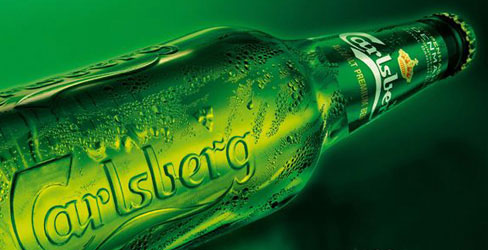
Thomas Fleming, a former president of the Society of American Historians, writes an excellent piece in today’s Wall Street Journal on the history and stupidity of Prohibition, the 13-year binge of sanctimony that a minority of eugenics fans, exploiting the anxiety of World War I and racist sentiment against Germans, imposed on the majority.
The column’s brief history lesson is a reminder that Prohibition wasn’t an overnight sensation but a slow process dating back to the late 19th century, when the minor craze for eugenics (the idea that you can refine the human race the way you can, say, beets), a craze even the likes of Justice Oliver Wendell Holmes eventually fueled with his nutty decision on “imbeciles,” combined with a leading economist’s nuttier notion that an alcohol-free America would be 20 to 30 percent more productive to launch prohibitionists’ zeal. By 1900, 37 states had adopted dry laws. Instead of talk radio’s imbeciles rattling off falsities to the four corners of America, you had 20,000 Anti-Saloon League (ASL) speakers fanning out all over the place, drunk on their misinformation–and enebriating a good many people who heard them.
When World War I started and Woodrow Wilson opted to join the war to end all wars, the prohibitionists saw a terrific occasion to exploit their cause. How could American soldiers perform under the influence? Drinking in the military was banned (it actually still is, in places like Afghanistan and Iraq). Then, since thousands of wheat farmers in the United States were of German descent, the Anti-Saloon Leaguers portrayed it as unpatriotic to sympathize with “Huns” (or let grain be diverted to alcohol production when it could make bread for hungry soldiers and allies).
Woodrow Wilson could have vetoed a law that would have established national prohibition by July 1919. He didn’t, worried that he’d offend his dry-state constituents. He offended his Democratic majority anyway, which he lost in the congressional election of 1920, and with it the chance to better influence the post-war years. Then came the Volstead Act, which specified in clearer detail how alcohol would be prohibited (down to the maximum level of 0.5 percent allowable in any liquid, which lopped off beer and wine, too). Wilson vetoed that one on Oct. 27, 1919 but the House overrode him two hours later (176-55)–with 31 of New York’s 43 representatives and 24 of Pennsylvania’s 36 representatives absent. Most of those would have been “wet” votes whose participation would have defeated the override. The Senate overrode the next day, 65-20.
It wouldn’t have mattered that much anyway, had the override not gone through. The 18th Amendment, which Congress passed on Dec. 22, 1917, was becoming effective on Jan. 16, 1921. The Volstead Act merely spelled out how the nation’s police could go abouit cracking skulls. As Fleming writes,
For the next 13 years, Prohibition corrupted and tormented Americans from coast to coast. A disrespect, even contempt for law and due process infected the American psyche. Rather than discouraging liquor consumption, Prohibition increased it. Taking a drink became a sign of defiance against the arrogant minority who had deprived people of their “right” to enjoy themselves. The 1920s roared with reckless amorality in all directions, including Wall Street. When everything came crashing down in 1929 and the long gray years of the Great Depression began, second thoughts were the order of the day. Large numbers of people pointed to Prohibition as one of the chief reasons for the disaster.
Fleming himself goes off the cliff in his last paragraph, when he warns that “with talk of restructuring large swaths of our economy back in vogue, Prohibition should also remind us that Congress, scientists and economists seized by the noble desire to achieve some great moral goal may be abysmally wrong.” It’s a dishonest conclusion. It conflates good science with the imbecility of eugenics as if all scientists today are, even as they weren’t at the turn of the last century, as misguided as eugenicists of yesterday. It conflates the specious conclusion of one popular economist in the previous century with the work of all economists today. And it suggests that Prohibition–the wholesale banning of a right on moral, and morally indefensible, grounds–is comparable to congressional regulation, which bans little, and has nothing to do with morals and (we hope) everything to do with tempering the amoral excesses of the market.
As a lesson in Prohibition though, Fleming’s piece is worth a case of Carlsberg.






























Leave a Reply